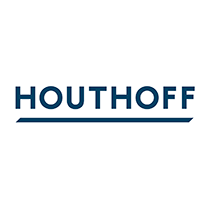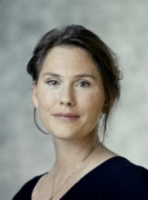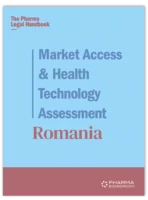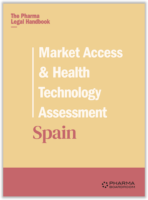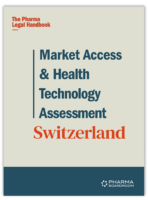Traditional Medicines and OTC Products: The Netherlands
Houthoff / Netherlands
1. What are the regulatory requirements for traditional, herbal, complementary, or alternative medicines and devices?
In principle, the regulatory framework set out in the previous Chapters applies. However, differing requirements or procedures apply for specific types of medicinal products. The Medicines Act distinguishes several types of medicinal products, including homeopathic medicinal products and herbal medicinal products. The definitions of these medicinal products correspond to the definitions provided by Directive 2001/83/EC:
- A homeopathic medicinal product is a medicinal product obtained by a homeopathic manufacturing process from raw materials referred to in the homeopathic-pharmaceutical literature as homeopathic raw materials (Article 1(f) Medicines Act).
- A herbal medicinal product is a medicinal product exclusively containing as active ingredients one or more herbal substances or herbal preparations, or a combination thereof (Article 1(i) Medicines Act). Medicinal products that also contain vitamins or minerals complementing the active herbal ingredients mentioned above with respect to the specified indications (Article 1(5) Medicines Act) are also considered herbal medicinal products.
Herbal medicinal products
Like all medicinal products, herbal medicinal products must be authorized by the MEB before they can be marketed in the Netherlands. An abridged procedure applies to traditional herbal medicinal products if the applicant shows that the product fulfills the cumulative conditions of Article 42(8) Medicines Act:
- the product has indications that are exclusively appropriate to a herbal medicinal product that by virtue of its composition and purpose is intended and designed as a medicinal product for use without the supervision of a medical practitioner;
- the product is exclusively intended to be administered in a specified concentration and dosage;
- it is a medicinal product for oral or external use or for inhalation;
- the product or an equivalent or comparable product has been in medicinal use for at least thirty years preceding the date of application for marketing authorization, at least fifteen of which in the European Union;
- sufficient data is available to demonstrate that the product has a traditional use and is harmless; and
- because of its long-standing use and experience, it is plausible that the medicinal product has a pharmacological effect or is otherwise effective.
For traditional herbal medicinal products, the applicant is not obliged to submit clinical and pre-clinical data. Instead, the MEB will assess the efficacy by reference to its long-standing use and experience (Article 42(8)(f) Medicines Act). The MEB will grant authorization for traditional herbal medicinal products if investigation shows the following: the conditions of Article 42(8) Medicines Act are fulfilled, the medicinal product is harmless under normal conditions of use, the medicinal product has pharmacological effects or efficacy, the pharmaceutical quality has been adequately demonstrated, and the product is not a homeopathic medicinal product (Article 45(2) Medicines Act). The MEB also takes into account the Community herbal monographs established by the Committee for Herbal Medicinal Products and, where appropriate, marketing authorizations or similar authorizations granted in another Member State. If the MEB refuses to grant a marketing authorization, it informs the Commission and, upon request, the competent authority of any other Member State.
Non-traditional herbal medicinal products that do not comply with the abovementioned criteria are subject to regular authorization by the MEB.
Homeopathic medicinal products
For the authorization of homeopathic medicinal products a similar abridged procedure as for traditional herbal medicinal products can be followed if the applicant shows that the application concerns a medicinal product that fulfills the following cumulative conditions (Article 42(3) Medicines Act):
- it is a medicinal product for oral or external use;
- no mention of any therapeutic indication is made either in or on its packaging, or in its package insert; and
- there is a sufficient degree of dilution to guarantee the safety of the medicinal product, in any case, the medicinal product may not contain either more than one part per 10,000 of the mother tincture or more than 1/100th of the smallest dose used in allopathy with regard to active substances whose presence in an allopathic medicinal product result in the obligation to submit a doctor’s prescription.
Non-classical homeopathic medicinal products that do not comply with the abovementioned criteria are subject to regular authorization by the MEB.
The Botanicals and Novel Foods (BNV) department of the MEB is responsible for the assessment of an application dossier for a classic and non-classic homeopathic medicinal products and traditional and non-traditional herbal medicinal products. If the medicinal product is positively assessed by the MEB, the manufacturer is granted a marketing authorization. The medicinal product is then entered in the Register of Medicinal Products and a registration number is attributed.
Herbal supplements
Herbal supplements are covered by the Commodities Act (Warenwet). In this regard, the Commodities Act only prescribes that products must be safe for use. The Dutch Food and Consumer Product Safety Authority (Nederlandse Voedsel- en Warenautoriteit (NVWA)) monitors compliance with the Commodities Act, investigates whether food supplements and herbal supplements contain prohibited substances, and checks their production, composition and labeling. Medical claims are prohibited (see further Question 3 of this Chapter).
For (alternative) medical devices, the regulatory framework as set out in previous Chapters applies.
2. Can these traditional, herbal, complementary, or alternative products be advertised directly to the public?
For the general framework applicable to advertising of medicinal products, please refer to Chapter 3, Question 20.
Traditional herbal medicinal products
Article 87 Medicines Act prescribes that advertising must include the following information:
- that a traditional herbal medicinal product is concerned;
- for which indications the product is used; and
- that the indications are based exclusively on a long-standing use.
Homeopathic medicinal products
Article 84(2) Medicines Act with reference to Article 69(1) Directive 2001/83/EC defines a strict scope of information for use in advertising. In addition to the clear mention of the words “homeopathic medicinal product”, the labeling and, where appropriate, the package insert, must bear the following, and no other, information:
- the scientific name of the stock or stocks followed by the degree of dilution, making use of the symbols of the pharmacopoeia,
- name and address of the registration holder and, where appropriate, of the manufacturer,
- method of administration and, if necessary, route,
- expiry date, in clear terms (month, year),
- pharmaceutical form,
- contents of the sales presentation,
- special storage precautions, if any,
- a special warning if necessary for the medicinal product,
- manufacturer’s batch number,
- registration number,
- “homeopathic medicinal product without approved therapeutic indications”,
- a warning advising the user to consult a doctor if the symptoms persist during the use of the medicinal product.
3. What health, advertising, and marketing claims may be made for traditional, herbal, complementary, or alternative products?
The general rule is that medical claims may only be used for medicinal product advertising if they are in line with the registered indication and the information contained in the summary of product characteristics. It is prohibited to make medical claims for products for which the respective party does not hold an MA (Article 84 Medicines Act). For traditional herbal medicinal products and homeopathic medicinal products, the limitations listed above in Question 2 of this Chapter apply to advertising.
The prohibition on medical claims also applies to food products. In this regard, the difference between a medical claim and a health claim can be subtle. A medical claim is regarded as constituting information which attributes to the product the property of preventing, treating or curing a human disease, or the reference to such properties (Article 7(3) of Regulation (EU) 1169/2011).
The presentation of medical claims for products, in particular foodstuffs, may have the consequence that the product in question is regarded as falling under the definition of medicinal product. After all, any substance or combination of substances that is presented as suitable for a medical purpose is regarded as a medicinal product (Article 1(b) Medicines Act). For food stuffs, this prohibition can also be enforced by the Dutch Food Safety Authority. For example, a company which allows for persistent posting of reviews on its website in which medical claims for its product are made, has in the past been considered to have presented the product as suitable for a medical purpose. This was considered to constitute advertising of the product as a medicinal product without possession of the required marketing authorization. There are a limited number of exceptions to the prohibition of medical claims for foodstuffs, such as the exception for food for medical use following from Article 5(2) of Regulation (EU) 2016/128. For these foods, it is mandatory to state the disease, condition or ailment for which the product is intended.
4. What are the regulatory requirements for over-the-counter (non-prescription) medications?
The Medicines Act distinguishes between prescription-only medicinal products (‘UR medicinal products’), and over-the-counter (“OTC“) medicinal products. OTC medicinal products are also referred to as so-called ‘self-care’ medicinal products, since they do not require a prescription. The Medicines Act distinguishes three classes of OTC medicinal products on the basis of the potential risks of the product (Article 56 of the Medicines Act). These three categories are:
- Pharmacy only (UA): medicinal products with a relatively mild potential risk;
- Pharmacy or druggist only (UAD): medicinal products with a relatively low potential risk;
- General Sale (AV): Medicinal products with a relatively very low potential risk.
The MEB determines whether a medicinal product can be sold without prescription and in which class a medicinal product belongs (on the basis of the criteria of Article 57 and 58 Medicines Act). Like all medicinal products, OTC medicinal products are subject to MA. However, depending on the composition of the product concerned, the authorization an abridged procedure may apply (see Question 1 of this Chapter). Compared to prescription-only medications, OTC medicinal products are subject to different regulations with regard to advertising (see further Questions 2 and 6 of this Chapter) and dispensation (see further Question 5 of this Chapter).
5. Are there any limitations on locations or channels through which OTC products may be sold?
The applicable limitations on the locations or channels through which OTC medicinal products may be sold differ according to, and depend on, the type of OTC product.
For the restrictions and requirements on the sale of pharmacy-only (UA) OTC products, pharmacy or druggist-only (UAD) OTC products, and the general sale of (AV) OTC products, please refer to Question 18 of Chapter 3.
6. What health, advertising, and marketing claims may be made for OTC products?
Medical claims for OTC products must be in line with the registered indication and the information contained in the summary of product characteristics. See further Question 3 of this Chapter.
7. Can OTC products be marketed or advertised directly to the public?
Please refer to Chapter 3, Question 17.
8. What is the mechanism by which a prescription-only product can be converted to an OTC product?
The MEB may take a new decision on the classification of a medicinal product if new information is brought to its attention proving that reconsideration is necessary (Article 59 Medicines Act).
9. What are the requirements for the importation of either traditional medicines or OTC products?
The general rule is that MA is required for the import of traditional medicinal products and OTC medicinal products (see further Chapter 1, Question 3).





